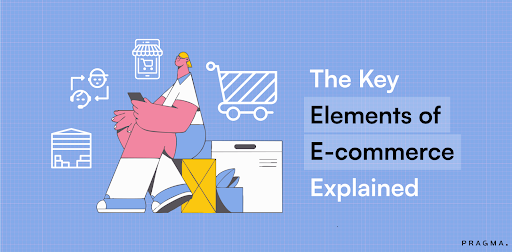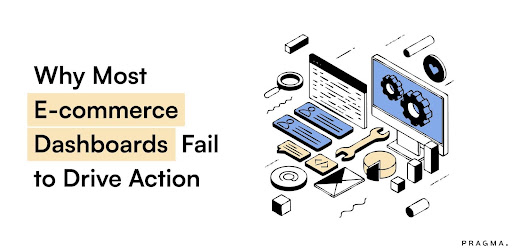With the changing landscape for businesses, and new players offering their services, nurturing your customer relationship has evolved far beyond traditional methods. D2C CRM and Omnichannel Marketing.
Be it providing your customers with discounted services, or introducing newer features to help you beat the competition, every brand must keep their customers at the centre stage while building any product.
With the emergence of omnichannel CRM, the wave of transformation on how businesses interact with their customers has changed, ensuring a seamless and integrated experience across various touchpoints.
But do you know what lies at the heart of this transformation?—it’s the power of Data, combined with the ability to Analyse it. For the right Optimisation.
Data analytics is the driving force that empowers D2C brands to gain valuable insights into customer behaviours, preferences, and trends - and that's what your Omnichannel Marketing Campaigns and CRM should provide..

In this blog, we will explore something similar - the role data analytics plays in shaping the omnichannel CRM landscape.
We will also cover how it equips businesses with the tools they need to thrive in an increasingly competitive market.
Returns Updates Everywhere, Support Volume Way Down
Slash Return-Related Support Work by up to 100% → Omnichannel Made Easy.
Deliver proactive, branded return status updates via WhatsApp, SMS, email, and dashboard—so customers never wonder, and your team handles fewer tickets.
Empower self-service, lower call volume, and increase post-purchase happiness.
What is Omnichannel Data?
Omnichannel data refers to the collection and integration of customer interaction and transaction data from multiple channels and touchpoints in a seamless manner.
In the context of customer relationship management (CRM), omnichannel data encompasses information gathered from various online and offline sources like:
- Retail stores
- E-commerce websites
- Mobile apps
- Social media
- Customer service interactions
- Email, and more

The key feature of omnichannel data is its ability to provide a holistic view of a customer's journey and behaviour across these diverse channels.
For D2C brands, this integrated data helps them gain a detailed understanding of their customers, enabling them to deliver personalised and consistent experiences.
Moreover, by analysing omnichannel data, D2C brands have been identifying trends, preferences, and pain points of customers that allow them to build better marketing and sales campaigns, and improve their customer service strategies.
Result? An increase in customer satisfaction & loyalty rate.
What is Customer 360?
A Customer 360, often referred to as a "360-degree view of the customer," is a detailed customer profile that combines data from various touchpoints and interactions across an organisation.
It provides an overall and real-time understanding of a customer's relationship with a business, analysing their purchasing history, preferences, behaviours, and how their engagement has been across multiple channels and products.
We’re sure that you might be wondering what data a Customer 360 provides to D2C brands, right?
Let us help you with the key features of Customer 360 and how it helps in targeting and personalisation.

1. Access to Demographic Information
Have you seen a product having more customers in Region A whereas the same product has very few customers in Region B?
This is because location, which comes under demographics, plays an important role in helping customers decide what to buy.
For example, a person in North India is more likely to buy woollen clothes than a person in South India. And this is what D2C brands can leverage while building campaigns that are geography-specific.
Similarly, various other factors can increase or decrease the purchasing power of a product.
Demographic details for D2C brands generally include:
- Age
- Gender
- Marital status
- Income
- Employment status
- Location of residence, etc.
Meaning, your next marketing campaign should be built on top of the above points:)
2. Track Users’ Transactional Data
By tracking a customer’s purchase history, order specifics, and financial transactions, the team can analyse what is the customer's buying behaviour.
Meaning:
- How likely are they to purchase something?
- What type of item they might be interested in?
- Their behaviour on previous marketing campaigns - actions on personalised offers or sales, etc.
- What are their economic interactions with the company - Will they buy high-value items or not, etc?
As we always say, no strategy works for 2 different brands.
But if you have data in all forms, you can build your strategy and succeed.

3. Monitor Social Media Activity
Cookies -> Touchpoints -> Marketing Campaigns
Omnichannel is the collation of interactions of a customer on various channels. This interaction along with consent-based cookies on their web and mobile can help D2C brands target personalised ads.
This helps in showing ads or content to users that help brands convert better.
4. Marketing Interactions
Collating data from ongoing marketing interaction on channels like email marketing helps in analysing what is the user interested in seeing.
We can also check their actions on campaigns with promotional offers which will help in offering personalised discounts, helping in better ROI.
A Customer 360 helps organisations improve customer experiences by:
- Enabling personalised interactions
- Targeted marketing
- Efficient customer service.
It allows businesses to better understand and meet customer needs, ultimately leading to increased customer satisfaction and loyalty.
The Role and Benefits of Data Analytics
Data analytics plays a crucial role in effective Customer Relationship Management (CRM) by providing D2C brands with the ability to collect, process, and analyse customer data better to understand their needs, behaviours, and preferences.

Now with data being the core of every strategy you build, it’s important to analyse some key benefits on how data analytics can positively contribute to building an effective CRM for your brand.
Let’s understand them below:
1. Lets you Segment Customers
D2C brands have always found it difficult to segment their customers based on various criteria such as demographics, purchase history, online behaviour, and more.
Data analytics allows these brands to segment audiences and build marketing and communication strategies specific to those groups, delivering more personalised and relevant content.
2. Provides a Detailed Predictive Analytics
Predictive analytics uses historical data to make informed predictions about future customer behaviour.
For example, it can help identify potential customers based on:
- High-value customers
- Forecast sales trends
- Predict when a customer is likely to churn, etc.
This information is valuable for the brand at any stage as they can then address customer needs and issues while resolving them promptly.
3. Enable Personalisation at Scale
Data can help enable personalisation in marketing and customer interactions at scale.
By analysing customer data, D2C players can create personalised recommendations, offers, and content, enhancing the customer experience and increasing overall brand engagement.
4. Build Customer Retention Strategies - CLV Analysis
Customer Lifetime Value analysis is a metric that represents the total net profit a company can expect to generate from a customer throughout their entire relationship.
With the CLV analysis, organisations can prioritise their efforts and resources in building guided decisions and retention strategies.
It generally takes into account the customer's initial purchase, repeat purchases, and the average duration of their relationship with the company.

5. Analyse Churn Prediction and Prevention
Let’s be honest - Not all customers you have are 100% satisfied.
But how to find those bunch of people, so that you attain maximum satisfaction?
Simply by analysing customer data, e-commerce brands can identify early signs of customer dissatisfaction and the likelihood of churn. This allows for targeted interventions by the marketing or sales team to build retention strategies to keep valuable customers.
6. Cross-selling and Upselling
How about selling more to your current customers?
This is where data analytics can uncover opportunities for cross-selling and upselling. By analysing purchase history and customer preferences, organisations can offer additional products or services that align with a customer's interests.
This will not only help in a better sales pipeline but also help in building better customer loyalty over and over new purchases.

7. Build over Customer Feedback and Analysis
Analysing customer feedback, reviews, and social media sentiment can help D2C brands understand their customers’ sentiments and even identify areas for improvement.
This data can be used by the product, and internal teams to enhance products, services and their other offerings for the customer.
8. Performance Measurement
Efficient measurement of your marketing or sales campaigns is like measuring how much mileage your car gives per litre of fuel consumed.
With data, insights into the performance of marketing campaigns, sales efforts, and customer service interactions can help D2C brands refine their strategies and improve overall CRM efforts - a better sales pipeline.
Other important benefits of data in Omnichannel CRM are:
- Real-time Decision Making
- Data Quality and Integration
- Compliance and Data Security
- Efficient Resource Allocation Across Channels
By identifying what’s working for your brand and what’s not, you can gain insights into customer behaviours, and hence build your strategies better.
By leveraging data-driven insights, organisations can create more personalised and effective customer interactions, improve customer satisfaction, and drive revenue growth. ROI of Omnichannel CRM
Common challenges with Data Analytics in CRM
Having advanced CRM analytics tools is fantastic, but if your team doesn't know the great work they can perform with it, its potential remains untapped.
While data can be the next best thing you invest your resources and bandwidth in, it also comes with its own set of challenges.
Not having an up-to-date technology stack, lack of relevant analytical skills, and customisation are the most common ones, but let us walk you through the unsaid challenges that you should keep in mind before starting to work with Data for your e-commerce brand.
Ensuring Data Quality with Proper Reporting
Ensuring that customer data is accurate and up-to-date is fundamental for D2C brands.
Think of this as the foundation of your operations. Any inaccurate or incomplete data can lead to misguided marketing efforts and missed opportunities for personalisation.
Hence, D2C brands must thrive on up-to-date data, that helps them offer personalised experiences throughout their journey.
Breaches in Data Security
Your customer data is a goldmine, but it's also a target for cyber threats.
Protecting it is a top priority. Breaches can lead to devastating consequences, including reputational damage and the loss of customer trust.
D2C brands must invest in robust security measures to safeguard this sensitive information.

Correct Interpretation and Deriving Insights
Data is only valuable if you understand what it's telling you.
Data analysts who understand how the D2C business model works, and what data touch-points are crucial while building a marketing strategy for such a brand are important.
They're the ones who dig deep into the data and extract actionable insights that can supercharge customer experiences and drive sales.
Unable to Manage Technology Cost
D2C brands often compete in crowded e-commerce markets. Balancing the cost of technology with the expected return on investment is like walking a financial tightrope.
Careful management of these costs is essential for ensuring financial sustainability and profitability in the long run.

Helping you choose an Omnichannel CRM?
Here we are again towards the end of a long guide and this time explaining to you what is the role of Data Analytics in the Omnichannel CRM approach.
As the role of Data is crucial, a quick, and responsive Omnichannel CRM that lets you track user behaviour, purchase history, and whatnot on a single dashboard is equally important.
Hence, integrating an Omnichannel CRM that provides you with perfect analytical insights can be highly beneficial for strengthening your Sales Cycle.
This is where a platform like Pragma’s Omnichannel CRM becomes helpful, where businesses can seamlessly connect with millions of users all from a single dashboard, and even automate most of their communications.
The best part - building everything backed on data.

Pragma’s Omnichannel CRM can help your Sales team in aspects like:
- Automating over 75% of support
- Providing 3X customer experience
- Boosting your support team’s productivity by 2x
- Providing your customers with a focused buying experience
- Improving conversion rate
- Reducing cart abandonment rate
If you are a D2C brand, we highly recommend you learn how you can start doubling down your sales funnel to hit the quarter target.
Let Pragma help you unlock the true potential of an Omnichannel CRM.
Until Next Time!

FAQs (Frequently Asked Questions On CRM and Omnichannel Marketing: A D2C Growth Strategy)
1. How does CRM enhance omnichannel marketing for D2C brands?
CRM centralises customer data enabling personalised, consistent messaging across channels, essential for effective omnichannel engagement and customer loyalty.
2. How do CRM platforms improve customer journeys in omnichannel marketing?
They unify interactions across touchpoints—social media, email, website—providing seamless, contextual customer experiences that increase satisfaction and retention.
3. What benefits does aligning CRM and omnichannel strategies offer D2C brands?
Aligned strategies improve engagement, consistency, and customer retention by delivering relevant content and smooth interactions at every stage.
4. Can you give examples of successful omnichannel CRM in India?
Brands like Nykaa, Reliance Retail, Tata CLiQ, and Domino’s use omnichannel CRM to unify offline and online channels, enhancing personalised marketing and customer experience.
5. Why is omnichannel marketing critical for Indian D2C brands?
With over 73% of Indian consumers engaging across multiple channels and UPI transactions soaring, omnichannel marketing delivers consistent, convenient experiences vital for growth.
Talk to our experts for a customised solution that can maximise your sales funnel
Book a demo




.png)